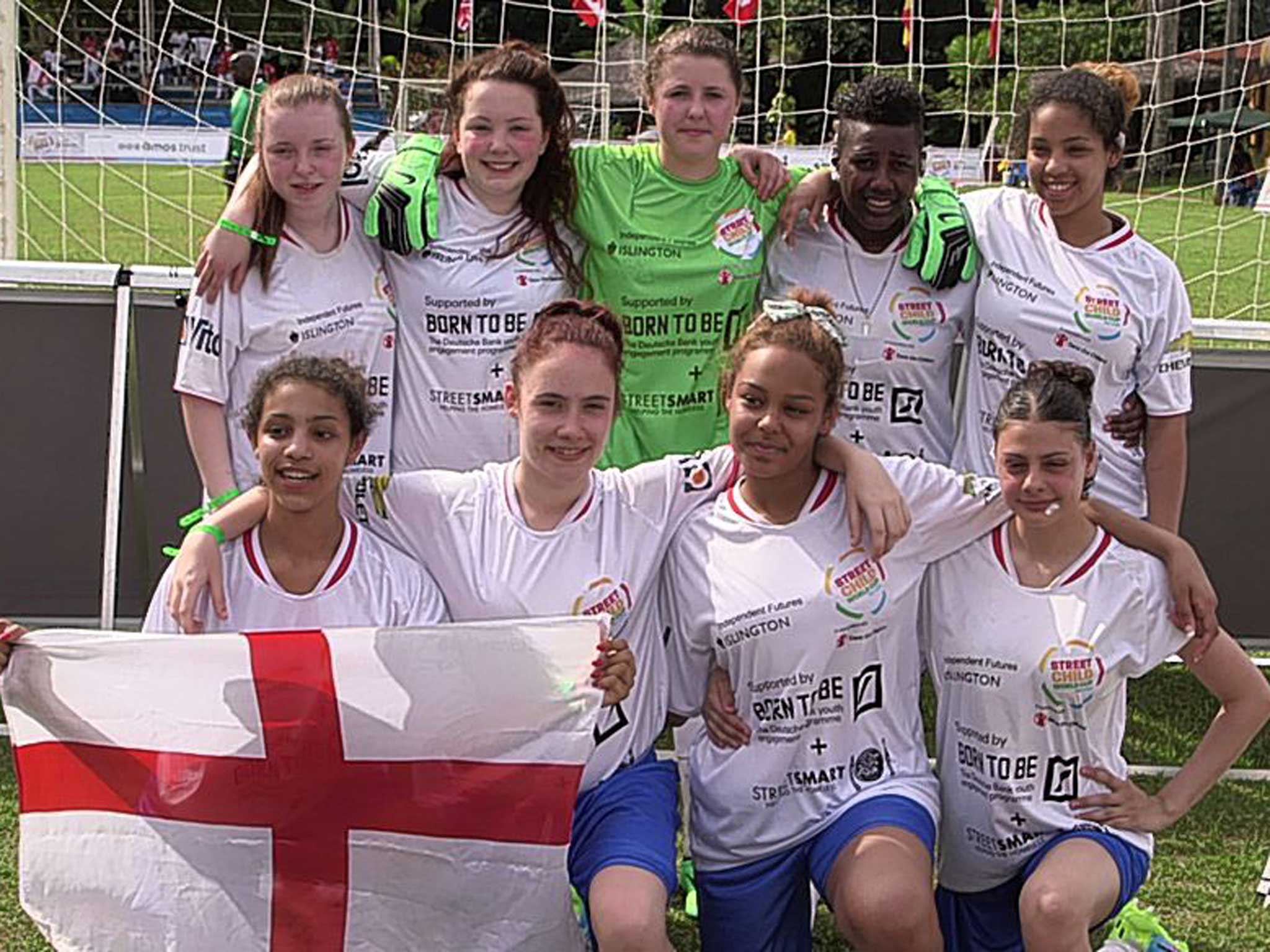Street Kid World Cup, BBC3, TV review: 'Streetwise teens show their winning ways in a heartening documentary'

Your support helps us to tell the story
From reproductive rights to climate change to Big Tech, The Independent is on the ground when the story is developing. Whether it's investigating the financials of Elon Musk's pro-Trump PAC or producing our latest documentary, 'The A Word', which shines a light on the American women fighting for reproductive rights, we know how important it is to parse out the facts from the messaging.
At such a critical moment in US history, we need reporters on the ground. Your donation allows us to keep sending journalists to speak to both sides of the story.
The Independent is trusted by Americans across the entire political spectrum. And unlike many other quality news outlets, we choose not to lock Americans out of our reporting and analysis with paywalls. We believe quality journalism should be available to everyone, paid for by those who can afford it.
Your support makes all the difference."Lelah! No phones out here, this is a game of football!" cajoled the England coach Jack, having managed to persuade his star midfielder to extinguish her cigarette but not to remove her piercings. Roy Hodgson's problems with his England team may be many, but they don't extend to asking Stevie Gerrard not to send text messages during a World Cup match.
Jack's England were a group of nine young women from London care homes taking part in an international football tournament in Brazil in the BBC3 documentary Street Kid World Cup. Although their inclusion seemed to be stretching the definition. Street kids? Anyway, the formula is one that has already won garlands for BBC3 with Blood, Sweat and T-Shirts – that's to say, exporting bolshie British teenagers to poorer parts of the globe to show the whingeing Brits just how fortunate they in fact are. And on the whole, the results off the pitch (on the pitch it was a rather different matter) were heartening.
For a start, these 17 and 18-year-olds weren't indulging in self-pity. "This isn't the X-Factor… I don't need a sob story," said team captain Sam. Far from it – in fact, they were glad of the others' company simply so as not to have to answer a lot of boring nosiness from those whose ideas about care stem from Tracy Beaker. "Some of the questions are quite deep so we know not to ask," said Cherelle, with hard-earned understatement.
Of course, there was culture shock and predictable moaning about the food and the cockroaches, and the girls preferred sunning themselves around the pool or sleeping in while the other teams trained at dawn. However, a four-nil drubbing in a warm-up match against the Philippines served as a wake-up call.
They managed better against Mozambique in the first match of the tournament proper, only losing three-one this time, but there was still no fraternising with the opposition. Their oblivious insularity was eventually shattered during a shared bus trip to the Statue of Christ the Redeemer overlooking Rio de Janeiro, with the Mozambique and Brazil teams determined to make contact. "I'm not in Rio," rhapsodised Camille, seemingly liberated by both the view and the warmth of her fellow travellers. "I believe I've come home." Given the nebulous nature of "home" for all these young women, that was really saying something.
Join our commenting forum
Join thought-provoking conversations, follow other Independent readers and see their replies
Comments